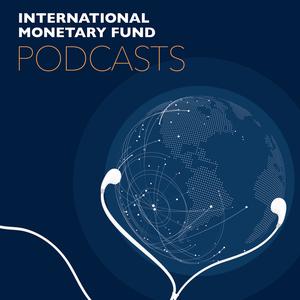
IMF Podcasts
IMF Podcasts
- 16 minutes 58 secondsElizabeth Johnson on Fixing Sao Paolo’s Housing Deficit
As urbanization continues to grow worldwide, affordable housing is a rare commodity in many cities. Sao Paolo, South America’s biggest city, has gained over 2 million new residents in the past decade alone. Elizabeth Johnson heads Brazil research at TS Lombard and has been studying Sao Paolo’s latest attempt at strengthening its housing strategy. In this podcast, Johnson says the city looked to its largely abandoned downtown core to address its housing woes.
Transcript: https://bit.ly/4fuFBNj
Read the article in Finance and Development: IMF.org/fandd
19 December 2024, 7:13 pm - 22 minutes 9 secondsDeniz Igan on The Housing Affordability Crunch
While housing markets play a significant role in economies, new research shows houses across 40 countries are less affordable than at any time since the 2008 financial crisis. IMF economist Deniz Igan helped develop the Housing Affordability Index. In this podcast, she says the pandemic triggered an unusual sequence of events that housing markets around the world are still struggling to correct. Transcript: https://bit.ly/49AeK0N
Read the article in Finance and Development: IMF.org/fandd
12 December 2024, 3:28 pm - 17 minutes 28 secondsDriving Change: Marcela Eslava on Latin America’s Social Security Woes
Driving Change: Women-Led Development Economics from the Ground Up
The International Economic Association’s Women in Leadership in Economics Initiative (IEA-WE) connects women economists worldwide and helps showcase their important empirical research, especially in developing countries. IMF Podcasts has partnered with the IEA-WE to produce a special series featuring the economists behind the invaluable local research that informs policymakers in places often overlooked. This episode of Driving Change features Colombian economics Professor Marcela Eslava, whose research looks to fix Latin America’s dysfunctional social security network.
Other episodes in the series include Turkish economist Ipek Ilkkaracan, who makes a strong business case for investing in social care infrastructure, and Kenyan economist Rose Ngugi, whose indices help local counties design better policies.
Transcript: https://bit.ly/3Os40bc
Special thanks to IEA editor Navika Mehta for this collaboration.
4 December 2024, 2:00 pm - 22 minutes 28 secondsDriving Change: Rose Ngugi on how Indices are giving Kenya an Edge
Driving Change: Women-Led Development Economics from the Ground Up
The International Economic Association’s Women in Leadership in Economics Initiative (IEA-WE) connects women economists worldwide and helps showcase their important empirical research, especially in developing countries. IMF Podcasts has partnered with the IEA-WE to produce a special series featuring the economists behind the invaluable local research that informs policymakers in places often overlooked. This episode of Driving Change features Kenyan economist Rose Ngugi, whose indices are helping local counties design policies that work.
Other episodes in the series include Colombian economics Professor Marcela Eslava, who looks to fix Latin America’s dysfunctional social security network, and Turkish economist Ipek Ilkkaracan, who makes a strong business case for investing in social care infrastructure.
Transcript: https://bit.ly/4eOBbAt
Special thanks to IEA editor Navika Mehta for this collaboration.
4 December 2024, 2:00 pm - 23 minutes 38 secondsDriving Change: Ipek Ilkkaracan on Why Investing in Care Pays Off
Driving Change: Women-Led Development Economics from the Ground Up
The International Economic Association’s Women in Leadership in Economics Initiative (IEA-WE) connects women economists worldwide and helps showcase their important empirical research, especially in developing countries. IMF Podcasts has partnered with the IEA-WE to produce a special series featuring the economists behind the invaluable local research that informs policymakers in places often overlooked. Driving Change kicks off this limited-run series from Turkey, with economist Ipek Ilkkaracan, who makes a strong business case for investing in social care infrastructure.
Other episodes include Kenyan economist Rose Ngugi, whose indices help local counties design policies that work, and Colombian economics Professor Marcela Eslava, whose research looks to fix Latin America’s dysfunctional social security network.
Transcript: https://bit.ly/3CQFQVq
Special thanks to IEA editor Navika Mehta for this collaboration.
4 December 2024, 2:00 pm - 21 minutes 45 secondsReforms amid Great Expectations: Sub-Saharan Africa’s Outlook
With sub-Saharan Africa soon to have one of the largest working-age populations in the world, removing barriers to business growth and encouraging higher productivity industries will help provide the employment opportunities it needs. But reforms don’t come easy. Wenjie Chen and Andrew Tiffin are economists in the IMF’s Africa Department and produce the Regional Economic Outlook for sub-Saharan Africa. In this podcast, they say addressing development needs while realizing reforms that create sufficient jobs will help garner public support and improve regional prospects.
Transcript: bit.ly/4fqMdwQ
Read the full report at IMF.org
13 November 2024, 4:10 pm - 18 minutes 57 secondsGlobal Financial Stability: Financial Markets Navigate Uncertainty
As inflation and interest rates continue to decline and the likelihood of a recession slowly fades, financial markets have seen big equity gains. But the latest Global Financial Stability Report (GFSR) warns of several factors that could upend the recovery, including the apparent disconnect between market buoyancy and heightened uncertainty, especially related to geopolitical risks. Jason Wu and Nassira Abbas lead the IMF’s work on financial stability. In this podcast, they say while the near-term risks appear contained, medium-term prospects remain a concern.
Transcript: https://bit.ly/48cGMyV
Read the full report at IMF.org/GFSR
22 October 2024, 2:15 pm - 22 minutes 20 secondsThe Case for a Global Corporate Minimum Tax: Cory Hillier, Shafik Hebous
While 21st-century globalization and international trade dramatically changed how multinational corporations operate, the way they are taxed is largely based on early 20th-century thinking. Recent efforts by the OECD and the UN to modernize the international corporate tax system include a minimum corporate tax to make it more equitable. The IMF has also joined the effort by providing its expertise on global tax policy. Senior counsel Cory Hillier and senior economist Shafik Hebous are coauthors of recent research that seeks to strengthen the impact of a corporate minimum tax.
Transcript: https://bit.ly/47YwFhb
10 October 2024, 5:11 pm - 31 minutes 52 secondsYuval Noah Harari on Human Evolution and the AI Revolution
Stories can unify or divide but our ability to imagine them is uniquely human. Cooperation and trust, built through shared stories and narratives, are the foundation of human societies and economies. So what happens when humans no longer hold the pen? Yuval Noah Harari is a historian, philosopher, and author of several books on human evolution, including Sapiens, and Nexus: A Brief History of Information Networks from the Stone Age to AI. In this podcast, Harari says artificial intelligence is a risk to humankind's most valuable resource, trust.
Transcript: https://bit.ly/4dvy3Jb
Find his books at ynHarari.com
1 October 2024, 12:36 am - 20 minutes 8 secondsEgypt: Stability Lays Groundwork for Transformation
With all the instability within the Middle East and North Africa region of late, Egypt has nonetheless managed to reign in soaring inflation and win its largest-ever foreign investment. Egypt’s efforts to restore macroeconomic stability in recent years have led to an arrangement under the IMF’s Extended Fund Facility for Egypt, which makes available US$820 million to help support its reform agenda. Ivanna Vladkova Hollar leads the IMF’s work in Egypt. In this podcast, she says that while stabilizing its economy is positive, Egypt’s next big step is an economic transformation that will lift its private sector.
Transcript: https://bit.ly/4efXuzH
Learn more about the IMF’s work in Egypt at IMF.org/Egypt
25 September 2024, 2:09 pm - 16 minutes 29 secondsNicholas Bloom on why Remote Work is Good for Growth
Working from home was not an option for most people before March 11, 2020, when work and home life suddenly collided. The pandemic upended many aspects of doing business, but the daily commute is one routine that seems unlikely to return to what it was. Nicholas Bloom was studying the potential impact of remote work long before the pandemic launched it into the mainstream and now has data to suggest businesses should stick to the hybrid working model. Bloom is the William D. Eberle Professor of Economics at Stanford University.
Transcript: https://bit.ly/3Xbxfmz
Read the article in Finance and Development: IMF.org/fandd
3 September 2024, 3:43 pm - More Episodes? Get the App
Your feedback is valuable to us. Should you encounter any bugs, glitches, lack of functionality or other problems, please email us on [email protected] or join Moon.FM Telegram Group where you can talk directly to the dev team who are happy to answer any queries.
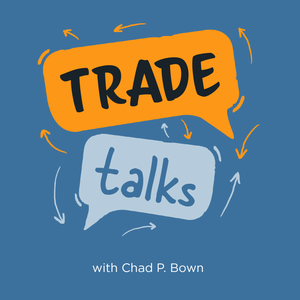 Trade Talks
Trade Talks
 Behind the Money
Behind the Money
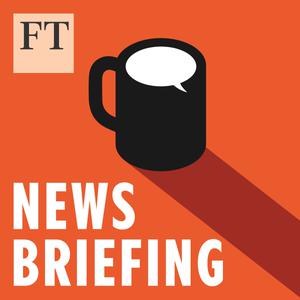 FT News Briefing
FT News Briefing
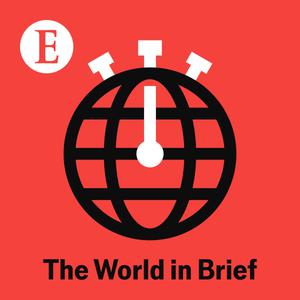 The World in Brief from The Economist
The World in Brief from The Economist
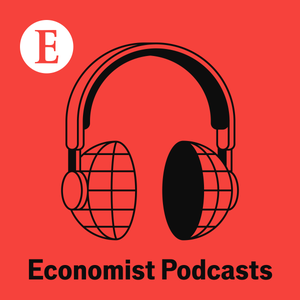 Economist Podcasts
Economist Podcasts
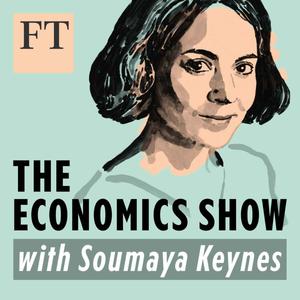 The Economics Show with Soumaya Keynes
The Economics Show with Soumaya Keynes